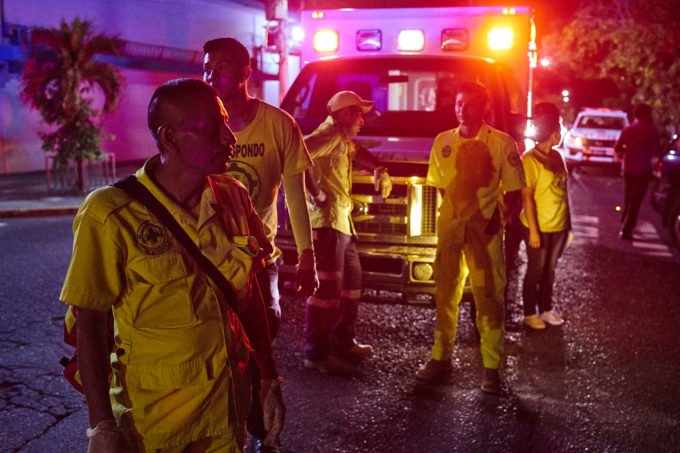
R&K Insider: It’s still January…

This week on R&K, photography from El Salvador and Vietnam, coffee with conflict journalist Yuri Kozyrev, and Britain’s vegan sausage roll controversy.
This post originally appeared on January 11, 2019, in R&K’s weekly newsletter. Read the archives and subscribe to the newsletter.
It’s the end of a long January week. The U.S. government is 21 days into a partial shut down, tied for the longest in history, with no solution in sight. Meanwhile in the U.K., there is continued fallout from a Twitter spat, mainly between curmudgeonly TV presenter Piers Morgan and everyone else, after Morgan objected to the British meat-and-pastry-focused bakery chain Greggs launching a vegan sausage roll.
On R&K this week, we have Dan Giannopoulos’s photo dispatch from El Salvador, where he photographed night shifts at a Comandos De Salvamento (CDS) base in the MS-13-controlled Colonia El Bosque neighborhood of San Salvador. The CDS are volunteer paramedics founded in the 1960s that were active during the country’s civil war and now treat victims of the city’s gang violence. At a time when many young Salvadorans are fleeing the country, CDS volunteers have chosen to stay, working long shifts and resting fitfully in bunks with their rescue equipment, waiting for the next call-out.
Today, we published a Q&A with Italian photographer Simone Sapienza on his Vietnam photo-series, “Charlie Surfs on Lotus Flowers.” On his travels through the country, Sapienza ventures beyond pure documentary photography to explore contemporary Vietnam through metaphors and nods to historic photographs, attempting to visually connect the country’s past and present.
And over on The Trip podcast, Nathan Thornburgh talks war stories with an old colleague and friend, Yuri Kozyrev, in Moscow. Kozyrev is a legendary conflict photographer with whom Thornburgh reported in Russia and the Caucasus, and who netted some of the industry’s highest awards for his work covering conflicts in Chechnya, Afghanistan, Iraq, Libya, and beyond—before he decided to stop covering war. Kozyrev talks about how he started out (“It’s crazy to do it this way. I survived, which is great”), buying back his own Leica camera at a drugstore in Afghanistan, and his new frontline: the Arctic.
—Alexa